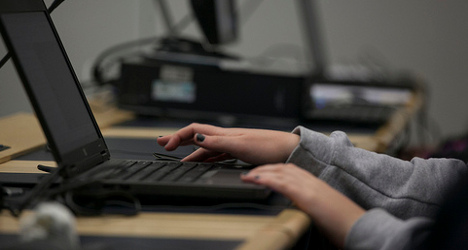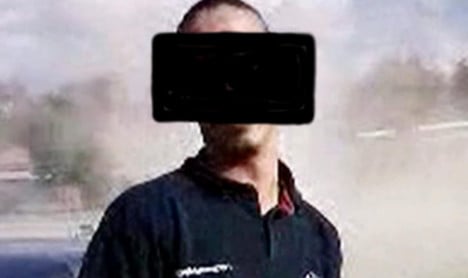The 21-year-old woman was charged late on Thursday evening, according to Europe1 radio. It is alleged she tried to make contact with Al Qaeda in the Arabian Peninsular, known as AQAP in 2012.
The woman, named only as Sara, lives with her parents in the neighbourhood of Belleville, in the 20th arrondissement of Paris.
She is alleged to have proposed sites in Paris to members of Al-Qaeda that could make potential targets for terrorist attacks, without receiving any response from the Islamist militants.
She was described as a “radicalised Muslim” who spent hours consulting jihadist forums, according to reports in the French media.
It emerged this week that the woman had already been arrested in February for meeting with Islamists suspected of trying to recruit Jjhadists to go to Indonesia. She was released without charge.
When police swooped again earlier this week at the family home they reportedly found a USB key proving she had downloaded software and encryption keys to enter radical Islamist websites.
It has also been alleged the young woman was a reader of online Jihadist magazine Inspire, which is aimed at Western Islamist militants. AQAP is believed to be behind the propaganda magazine.
US media have quoted investigators saying Dzhokhar and Tamerlan Tsarnaev, the two brothers believed to have carried out the Boston Marathon bombings in April, had read the magazine and may have followed its instructions on making pressure-cooker bombs.
Copies of the magazine have been seized in other arrests of alleged radical Muslims in France.
Last week The Local reported how a webmaster from northern France was arrested and charged on Thursday for "provoking" and condoning terrorism. He stands accused of translating articles from Inspire into French.
France is battling homegrown Islamist radicals and has stepped up securitysince Al-Qaeda-inspired gunman Mohamed Merah killed seven people in and around the city of Toulouse last year.
Don't miss stories like this – join us on Facebook and Twitter



 Please whitelist us to continue reading.
Please whitelist us to continue reading.
Member comments